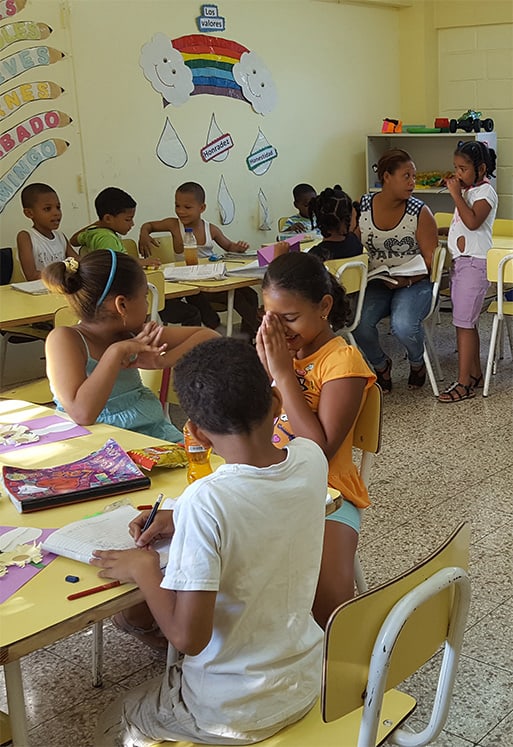Our History
The Abriendo Camino Foundation is a secular nongovernmental organization founded in 2003 in the neighborhood of Villas Agrícolas, in the Dominican Republic’s capital city of Santo Domingo.
It was founded by Nelia Barletta, Mijo Leurent and Elisabeth Puig, three women from civil society who began with a small project based around educational and recreational Saturday activities at a site owned by the San Mateo Apóstol Parish in the Dominican Republic. The ever-growing attendance of neighborhood children and teens led the three women to reflect on the need to widen the reach of their activities while increasing the coverage and quality of their interventions.
Thus arose the idea of creating a foundation, with its own building on a plot of land belonging to the Church in the heart of Villas Agrícolas, Santo Domingo. They commenced their work with the opening of a library and the development of technical-professional training courses in collaboration with INFOTEP (the National Institute for Technical-Professional Training) to facilitate the entry of neighborhood youth and adults into the labor market.
Soon the Up to Grade Level (a program to bring students up to grade level) was added to the initial project, to improve the math and literacy skills of children and teens in Villas Agrícolas. Little by little the Foundation has discovered its identity and blossomed into a center where children and young adults can develop their potential through educational and recreational activities removed from the risky and often violent circumstances that reign over the sector.
Among the institution’s strategies for growth, a predominant characteristic has been the constant evaluation of the work we’ve completed, giving us the capacity to adapt to the necessities of the sector of Villas Agrícolas by listening to community members and defending their rights.

“Thus arose the idea of creating a foundation, with its own building on a plot of land belonging to the Church in the heart of Villas Agrícolas, Dominican Republic.”





